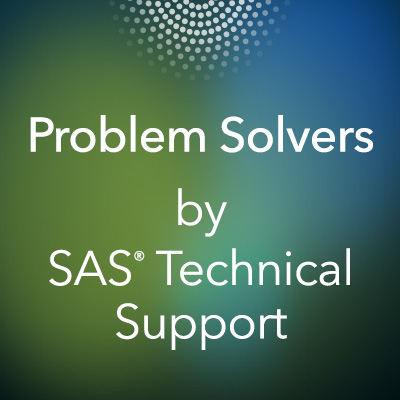A brave new world of analytics
The analytics world is
changing at a breakneck pace. Whether it’s big data, the rise of data
scientists or dozens of other factors, analytics professionals are scrambling
to keep up.
What kinds of analytics challenges are
organizations facing today?
The challenges fall into three areas. First, it’s about
resources. Organizations simply don’t have enough people who can manage,
manipulate and analyze the data that they accumulate. A key group that does
this is known as data scientists. There are other professionals that perform
these tasks as well, sometimes identified as citizen data scientists,
statisticians, and business analysts or analytics domain experts. No matter
what you call them, their analytics skills and knowledge make them valuable –
and difficult for organizations to attract, hire and retain. Keeping them happy
often means letting them try out cool new technologies to stimulate the kind of
creativity that generates new innovation.
The next challenge comes from the types of data that
organizations are dealing with. This goes well beyond a “big data problem” to a
“bigger than big data problem.” Data is now stored in a variety of
architectures, both on- and off-premises. Some of that data (but not all) is
under the direct control of the organization. Data volumes continue to
accelerate, driven by streaming data. Data lakes established to handle all of
this data are starting to overflow. And with the demand for analysis to be
performed at a sub-second rate, landing the data to analyze it is a
non-starter. All of this adds up to a complex environment from an IT
perspective that is getting more complex all the time.
Finally, the sheer importance of analytics is elevated.
Disruptive, forward-thinking organizations often view themselves as
analytics-based. They consider the value of their analyzed data as the strategic
asset. This creates new challenges, however. For example, data-driven companies
must be transparent about what they do with their data to avoid a perceived
violation of privacy. Shielding the organization from risks means treating both
the data and the analytics environment as the most valuable resources the
organization has. That requires a high degree of security and governance.
You mentioned a very complex data landscape
that is “bigger than big data” and what that looks like. How does that affect
analytics?
We see that demand for analytics tends to start small and get
bigger (and bigger) more rapidly than organizations can adapt. For example,
it’s common for people who start getting answers from analytics to ask more and
more questions and for those questions to quickly drown out the answers. You
can quickly get to some interesting questions, like “How many more customers
could we process if we shaved operations 10 seconds?” That simple question
leads to a host of other questions as analysts try to find the best path for
the organization.
All of this curiosity can lead to an exponential increase in the
analytics at play. One week it’s 100 models, the next week its 500 models. On
the data side, one week it’s gigabytes of data to analyze, the next week it’s
petabytes. There’s also a need to incorporate the latest techniques in machine
learning, cognitive computing and other advanced methods. You have to integrate
data housed in traditional database structures, distributed structures like
Hadoop, or even data that is in motion. Soon, organizations aren’t sure how
they will make it to the end of the year, let alone plan for next year.
It becomes overwhelming if the infrastructure isn’t in place to
handle diversity within the data environment and facilitate a rapid scale-up.
One way that we see organizations trying to address this is to look for ways to
support all of their analytic assets from a single analytic environment that
can be managed, maintained and scaled as needed.
How do you feel that SAS can help customers
address these needs? This is what we do, and we’ve been doing it for a long time. SAS
has been solving problems like these for 40 years now. SAS Viya is coming out
at the right time to help us solve the next wave of our customers' challenges.
It will serve as the foundation of the next 40 years of service to our customer
base.
Kindly visit us at :http://epochresearchinstitute.com
Email us: info@epoch.co.in
Contact us: +91 79 40327000
Epoch Research Institute Links:
Email us: info@epoch.co.in
SAS Training & Placement Programs with Internship: Epoch Research Institute India Largest and Oldest #SASTraining Institute (#epochsastraining)
EPOCH RESEARCH INSTITUTE OFFERS:
Authorized SAS TRAINING | SAS CERTIFICATION | SOFTWARE PURCHASE | BUSINESS CONSULTING | TECHNICAL SUPPORT ON SAS || SAS STAFFING SOLUTION
#SASELEARNING,#SASELEARNING,#SASONLINETRAINING,
#SASONLINETRAININGFORBEGINNERS,#LEARNSASPROGRAMMINGONLINE,
#SASCLINICALONLINETRAINING,#SASBASEONLINETRAINING
#BIGDATASASTRAININGEPOCH,#SASBIGDATATRAINING #ANALYTICSTRAINING, #SASTRAINING
#SASONLINETRAININGFORBEGINNERS,#LEARNSASPROGRAMMINGONLINE,
#SASCLINICALONLINETRAINING,#SASBASEONLINETRAINING
#BIGDATASASTRAININGEPOCH,#SASBIGDATATRAINING #ANALYTICSTRAINING, #SASTRAINING


No comments:
Post a Comment